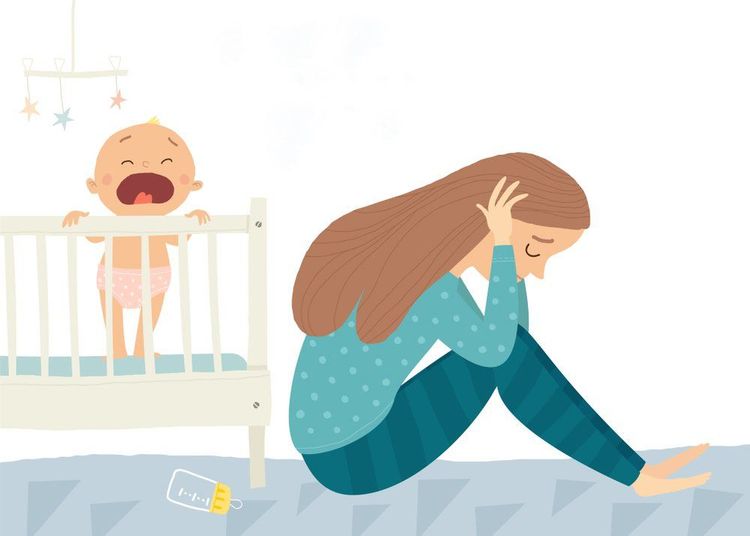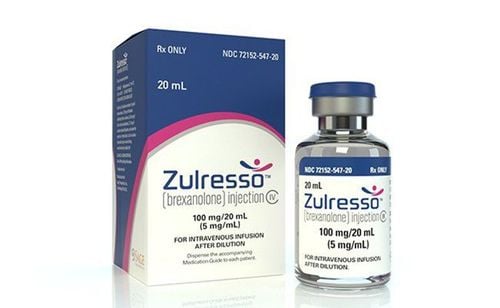This is an automatically translated article.
The article was professionally consulted by MSc Ta Quoc Ban - Obstetrician and Gynecologist - Department of Obstetrics and Gynecology - Vinmec Phu Quoc International General HospitalPostpartum depression is a relatively common syndrome among young mothers. There are many causes of postpartum depression. In particular, the main cause is due to the sudden change in hormone (hormonal) levels after giving birth. So is there a way to help scientists predict the risk of developing postpartum depression in pregnant women? When mothers know their risk, they can proactively take better measures to prevent postpartum depression.
1. Can postpartum depression be screened for with a blood test?
Can a simple blood test help predict a pregnant woman's risk of postpartum depression?Researchers from the University of California, Irvine say that hormone levels produced by the placenta around the 25th week of pregnancy can help predict a woman's likelihood of developing postpartum depression syndrome.
Dr. Ilona S. Yim and colleagues analyzed blood samples from 100 pregnant women and found that those with higher levels of placental corticotropin-releasing hormone (pCRH) in mid-pregnancy had a higher risk of pregnancy. more likely to have postpartum depression. The blood test accurately screened 75% of people for future symptoms of postpartum depression.
The findings, published in the February issue of the Archives of General Psychiatry, have sparked controversy: it's possible that one day postpartum depression screening testing could become routine in prenatal care in pregnant women. The researchers suggest that the screening test could be done at the same time as the gestational diabetes test, which is done between 24 and 28 weeks of pregnancy.
Postpartum depression can cause feelings of sadness and hopelessness, usually within the first four weeks after giving birth. Postpartum depression is different, more severe than the "baby blues", and the symptoms last longer.
What makes a woman more likely to have postpartum depression is not entirely clear. Risk factors for postpartum depression include a history of depression or premenstrual syndrome, stress and anxiety during pregnancy, lack of social support, and fluctuating hormone levels.
Some studies have suggested a link between placental corticotropin-releasing hormone levels and postpartum depression, but these studies provide insufficient evidence.

2. Hormone levels and relationship with postpartum depression
To investigate the link between placental corticotropin-releasing hormone levels and postpartum depression (pCRH), a team of researchers took blood samples from pregnant women at 15, 19, 25, 31, and 37 weeks of pregnancy. pregnancy and measure pCRH and cortisol levels.Pregnant mothers are also further screened for depressive symptoms at their last four prenatal visits and again around nine weeks postpartum.
Sixteen screened women showed symptoms of depression after follow-up. Women with elevated pCRH at 25 weeks of pregnancy have a higher risk of developing postpartum depression.
"The placental CRH in this study was a marker and moderately sensitive for postpartum depressive symptoms, allowing accurate identification of 75% of women with postpartum depressive symptoms in the future. hybrid, with a low error rate of 24%.
Cortisol and adrenocorticotropic hormone (ACTH) levels do not appear to be significantly associated with the development of postpartum depression. found that an increase in pCRH in mid-pregnancy may be related to an increase in cortisol during early pregnancy
Postpartum depression has a serious impact on the mother's health, especially the physical development. In the case of severe disease, the woman will not be able to control her thoughts and actions, causing acts of violence against the child right after giving birth.

If you have a need for consultation and examination at Vinmec Hospitals under the nationwide health system, please book an appointment on the website for service.
Please dial HOTLINE for more information or register for an appointment HERE. Download MyVinmec app to make appointments faster and to manage your bookings easily.
Reference source: webmd.comSee also:
How is postpartum depression diagnosed and treated? 5 causes of postpartum depression - early recognition for timely treatment Don't neglect postpartum psychosis Overcoming postpartum depression: What you need to know Postpartum depression can recur during childbirth next














